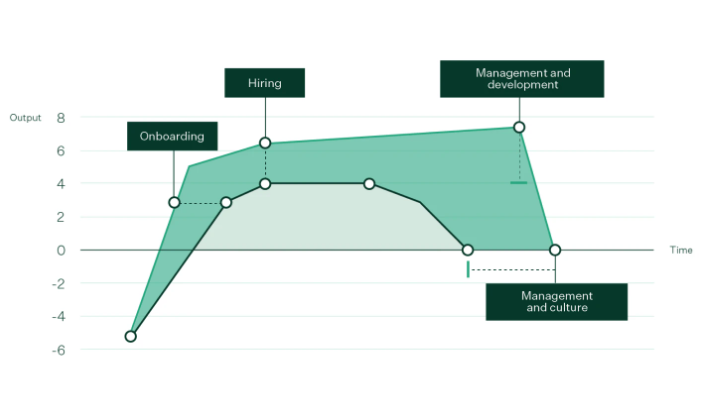I’m in NYC this week for the annual Greenhouse Open. Greenhouse is a best-in-class ATS with over 7,000 customers, and this is their annual user conference. So, a whole bunch of recruiters and recruiting leaders nerding out on recruiting stuff! Meaning a perfect place for me!
Greenhouse has a philosophy that they are the perfect hiring engine for organizations that consider themselves “People-First”. What does that mean? That’s the big question because every company I know, or at least every executive I know, would claim to be People-First. But, what I know is very few actually are people-first.
Daniel Chait, the co-founder of Greenhouse laid out what he considers people-first. The hallmarks of people-first companies:
- Organizations that invest in tools that allow employees to be their best selves.
- Organizations that work to improve collaboration amongst employees, cultivate belonging, and increase fairness.
- Organizations that really care about culture, values, DEI&B, and allyship.
- Organizations that care deeply about recruiting talent because the only way you lead and stay competitive is through great talent.
The hard part about being people-first, because I will tell you right now, every single one of your executives will read the list above and go, “yeah, that’s us!” is just that. They, being an executive, believe you are people-first, but as move down the food chain, it begins to feel less and less like people first.
I think about my own company and go, “yeah, we are people-first!” but I know for a fact that the feeling of individuals is very different based on a lot of variables. Great performers vs. low performers. New employees vs. experienced employees. Higher paid vs. lower paid. Etc.
That is the difficulty of being a people-first company. It’s the difficulty with the concept of belonging. It is super hard to make every single person in your company feel like they belong every day. You can do all the right stuff, and one day, one employee with a certain mindset, comes in the hears the wrong thing, and all of a sudden, they don’t feel like they belong. Does that not make you a people-first organization?
I think what Daniel is saying is that you espouse to do all the hallmarks the best you can today, and you keep trying to improve. Part of having a great culture and a great hiring process is finding a diverse and inclusive set of employees who match your culture. The feeling of belonging is critical to your hiring process and selection, as much as the environment you will ask them to work in.
Why is a recruiting software company talking about people-first? Because what they have discovered over the past ten years of being in business is you can sell software to anyone, but if they don’t share your same values and beliefs, it probably doesn’t work out very well for either party! Your tech isn’t just lines of code. It was built on a philosophy and continues to be developed and improved by a certain philosophy. A true partnership with your technology comes when your philosophies align.
Check out the Greenhouse Open this week virtually if you can!

